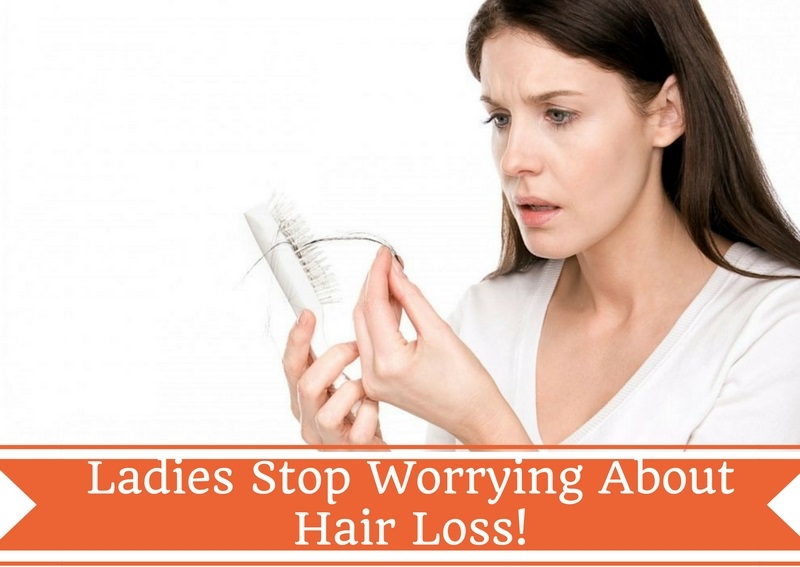Women Hair Loss: Protecting Your Tresses
Female hair loss is one of the beauty topics often neglected by magazines and online sites alike. While we talk about botox injections and face lifts, hair loss is a reality many beauty magazines are not ready to face. Male pattern baldness is a severe problem, but so is alopecia for women. The good news is that hair loss can be combated. Let’s delve into facts first and strategies later.
The Facts
- The human head has 100,000 hairs.
- Each goes through a life cycle and a single follicle produces a single hair growing at the rate of 0.50 inches in a month.
- The hair strand grows for 2-5 years approximately and ceases to do so for the last month
- Once the next cycle commences, the hair comes out and falls in a natural process. This marks the growth, rest, and shedding phase.
- At any one point in time, most locks are in the growth phase.
- Telogen effluvium is the general shedding of hair to the tune of 100 strands in a day.
- Sometimes, shedding worsens on account of stress, hormones, medication or illness.
- Androgenetic alopecia(female pattern baldness) is hair loss and thinning in the top . This is the result of an enzyme leading to the conversion of male sex hormone testosterone to hormone DHT causing hair follicles to thin out till they stop. DHT stands for dihydrotestosterone.
- Alopecia aerata is the auto-immune condition which affects a small percentage (2-3 percent) of the population
- It leads to round patches of hair loss causing total baldness and often leading to regrowth.
- There are about 50 hair loss disorders known to science
Causes of Hair Loss
The treatment depends on the cause of the hair loss. So let us examine all the causes in detail.
Genetic Factors
If hormonal imbalances along with the failure of conversion of testosterone to dihydrotestosterone are genetically inherited, hair loss can be inherited from either of the parents.
Trauma and Stress
Stress leads to increased testosterone levels. This, in turn, converts to dihydrotestosterone and causes an interruption in the cycle of hair growth. Stress as well as trauma also harms supply and flow of blood, oxygen, and nutrients to the capillaries. This results in a lack of vitamin and nutrient absorption of hair follicles. Trauma ranging from accidents to surgery and severe or chronic disease can trigger telogen effluvium. The hair can be pushed into a shedding phase for longer periods of time due to stress.
Poor Diet and Lack of Nutrition
Poor nutrition, increased weight loss and enhanced consumption of animal fats and deficiencies in iron, protein, zinc and biotin can lead to the reduction of amino acid and vitamins needed for growing hair.
Illness and Medications
Thryoid as well as cancer are some of the diseases along with their medications and treatments such as chemotherapy for cancer and HRT for thyroid, also cause hair loss. These are common health linked reasons for losing hair. From birth control to steroids, blood pressure, diabetes, heart and acne medicines, many kinds of drugs can lead to hair thinning and loss of hair. Specific medications also lead to hair loss including beta blockers, blood thinners, and other BP medication. Methotrexate (used in curing rheumatism), lithium for bipolar disorder and nonsteroidal anti-inflammation medicines along with medication like Prozac for curing depression also lead to hair loss.
Environment and Life Changes
Environmental pollutants in the water and air can also cause hormonal imbalances and lead to loss of hair. Exposure to metallic content, too many minerals or excessive chlorine can also be a cause. Free radicals and harmful UVA and UVB rays can cause alopecia as well.
Life Changes and Ageing
During pregnancy or childbirth, temporary hair loss can last for up to a year. Hormonal transitions in women going through menopause also lead to hair loss. As follicles fall in quality and we grow older, we experience a greater amount of hair loss. Pregnancy is one instance of physical stress that trigger hormonal changes, leading to hair loss. It can even occur after childbirth.
Too Much Vitamin A
Excessive vitamin A-containing supplements or medications can also lead to hair loss, according to the American Academy for Dermatology. You must not overshoot five thousand IU/ International Units per day for adults and children above 4. Supplements generally have anywhere from 2.5 to ten thousand IU. Once excess intake of the vitamin ceases, hair loss stops
Lack of Protein
If there is too little protein in your diet, the body may limit the use of it and shut down hair growth. This can be the result of low intake of protein for 2–3 month. Some wonderful sources of protein include eggs, meat, and fish.
Female Hormonal Imbalance
Just as pregnancy hormone causes changes in hair volume, so does going off the pill. This may lead to temporary hair loss, especially if you have a family history of the condition. Hair follicles become miniature when the male hormone receptors on the scalp undergo activation. This leads to loss of hair.
Emotional Distress
Emotional stress is likely to cause hair loss. This is more so than physical stress. While emotional stress won’t actually lead to low hair volume, it can precipitate an existing situation. The shedding will finally lessen when the stress lowers.
Anaemia

About 1 in 10 females suffers from this condition. Caused due to iron deficiency, it is also likely to lead to hair fall. Use a blood test to assess if you have this condition. Other signs of anaemia include fatigue, head pain, giddiness, paleness and cold limbs.
Lupus
This is an autoimmune condition which causes hair loss because immunity system targets the hair thinking it is a foreign body.
Massive Weight Loss
A dramatic weight loss can result in thinning hair as well. This occurs even if the weight loss is perfect for you. Weight loss also means cutting down on nutrients and minerals that are good for your hair
PCOS/ Polycystic Ovary Syndrome
This is another imbalance in male and female sex hormones. Excessive androgen can lead to the formation of ovarian cysts, weight gain and more chances of developing diabetes apart from hair thinning and loss. Male hormones increase on account of PCOS and this directly impacts the hair.
Rough Treatment of Hair and Tight Hairstyles
This can also be the reason for sudden and dramatic hair loss. From tight braids to cornrows and hair weaving, hair loss can result from numerous treatments. Even harsh chemicals or extreme heat can damage the hair. Limit the amount of time the curling iron is in your hair or you may have no tresses left! Extremely harsh styling affect the hair roots, so hair does not grow back.
High on Steroids, Low on Hair Volume
If you are taking anabolic steroids, abused by athletes often, you stand to lose your hair along with your health. Because such steroids impact the hormone levels, don’t expect your hair volume to not be affected.
What You Can Do
Consult an Expert
This is the first thing you can do. Getting a proper diagnosis will prevent you from using fake hair care products that promise the moon but don’t deliver. Doctors may also prescribe topical lotion Minoxidil and Finasteride tablets which help in growth.
Access a Balanced Diet
The hair follicle is one of the last tissues in the human body to get nutrients. So, any time you reduce your nutritional intake, this can impact the quality of your hair. Hair is mostly made up of protein. A balanced diet rich in nutrients is the best choice. Nutrients your diet needs to be rich in include:
- Iron
- Silica
- Biotin
- Zinc
Use supplements if you feel your diet is not nutrient dense enough.
Increase Intake of Iron
A quick acting trigger for women hair loss is iron deficiency. Iron binds the protein involved in producing hair cells and preventing hair loss. This protein is called ferritin. Low iron content reduces the growth of hair as well. Dark green vegetables such as spinach and kale which include iron are therefore good for your health as well as your hair. Vitamin C found in citrus fruits like lemons and oranges as well as peppers and strawberries increases the absorption of iron in the body. So, you need to ensure that you eat these foods as well.
Try Conditioners and Hair Restoration Agents

Redensifying shampoo and conditioning agents can stimulate hair growth and nourish the shafts, strengthening the roots of the hair. Protein rich hair oils and lotions are also a good idea. Hair restoration treatments are also there to ensure that you don’t lose out on healthy tresses.
Treat the Medical Condition Underlying the Hair Loss
Most medical conditions like lupus, hypothyroidism, and diabetes interfere with one of three phases of hair growth:
- Anagen/growing phase
- Catagen/ regeneration phase
- Telogen/ resting phase
Certain medications causing hair loss including heparin, levodopa, and lithium. So treat the medical condition and ensure that you change your medication in case it is causing hair loss.
Assess The Role of Your Hormones
Hormonal imbalances can be treated. Consult your doctor in case you have hypothyroidism and you can use hormone medication to improve the quality of your hair.
Low-Level Light Therapy
This process of therapy has been discovered for promoting wound healing in the 1960s. The precise mechanism of action for treating hair loss is also being explored.
Take Vitamins
Take vitamin A,D,E and K supplements and products that contain Omega 3 and 6. Take melatonin for positive results. Topical lavender as well as jojoba oil, aloe vera, saw palmetto, rosemary, biotin, emu oil, safflower, licorice and sage are some of the other natural remedies for reducing hair loss.
Natural Remedies
Jojoba Oil

This is an efficient home remedy that has been used for hundreds of years. This has an impressive effect on hair growth when the oil is rubbed into the scalp at the point where the hair loss is prominent.
Saw Palmetto
This benefits hair loss for women, by blocking the formation of DHT. This is a hormone that kills hair follicles resulting in massive hair loss. This can initiate alopecia. Increasing saw palmetto will improve the health of the hair.
Rosemary
Rosemary has been used for improving the volume of hair for hundreds of years. When mixed with almond oil, this herb can make a massive difference to your hair when applied to the scalp.
Emu Oil
This oil has been recommended by many for hair loss. It acts to moisturize and stimulate the growth of hair in the follicles. Emu oil can be directly applied to the scalp.
Licorice
This is also good for blocking the forming of dihydrotestosterone. DHT is generated from testosterone and licorice does not allow the hormone to undergo any change.
Safflower
To improve circulation, use a good vasodilation to open up blood vessels in the scalp. This reduces BP by relaxing blood pressure. So, the flow of oxygen, nutrients, blood to the hair improve the health. Vasodilators like safflower are effective in this regard.
Potassium
Foods such as bananas can improve circulation to the scalp as it contains the vasodilator potassium. It can help to manage fluid balance in the human body which maintain cells and prevent follicle malfunction.
Coconut Milk and Fenugreek Powder
Create a paste for improving the volume of hair through a combination of fenugreek powder and coconut milk in the ratio 2:3 and massage the mixture into the scalp. Set it aside for 30 minutes and then wash it off. Your hair will get the nourishment it needs.
Drink Tea
Drink tea containing horsetail, nettles, licorice, burdock root, saw palmetto and rosemary for promoting hair growth. Each of these nutrients can be used for making hair look good. Horsetail is rich in selenium and silica boosting scalp circulation. Fatty deposits are dissolved through burdock root to block loss of hair.
Use these wonderful remedies and get the look you want. Healthy hair is now within your reach.

